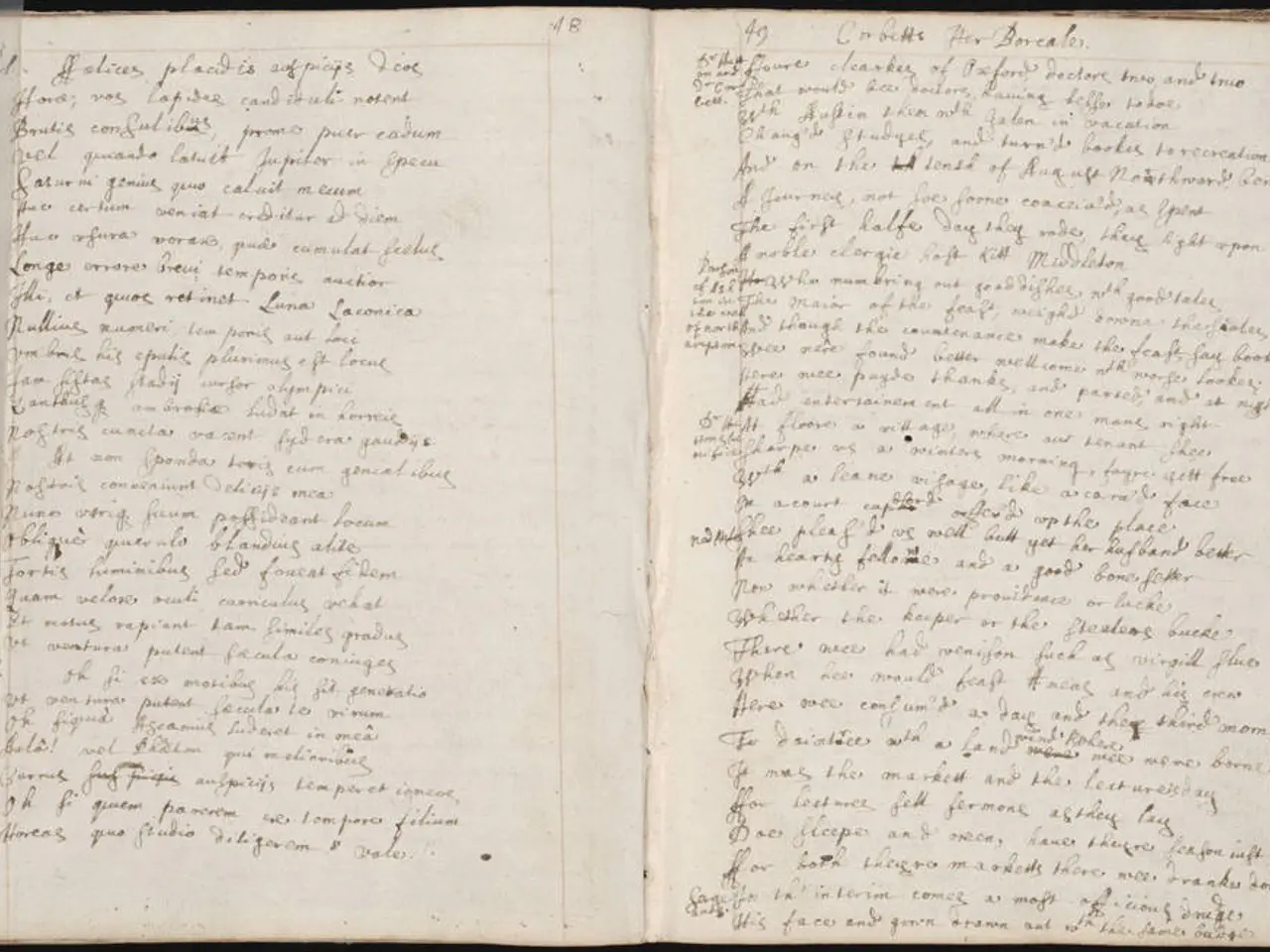Exploring the Significance of Long-Form Essays in IB Social Studies - A Comprehensive Overview
The Extended Essay (EE) is a significant component of the International Baccalaureate (IB) Diploma Programme, offering students the opportunity to delve deeper into their chosen Individuals and Societies (I&S) subjects. This article provides a comprehensive guide to crafting a top-scoring EE.
The EE Process
- Choosing a Focused Research Question: A key step is selecting a researchable and focused question within your chosen discipline. This question should be narrow enough to explore in 4,000 words, rooted in primary or secondary data, and subject-specific.
- Independent Research and Writing: Conduct approximately 40 hours of independent research and writing, guided by an EE advisor but with predominantly self-directed effort.
- Structuring the Essay: Organise your essay into clear sections: introduction, body (analysis and argumentation), conclusion, and reflections. The introduction should typically be 300-400 words, defining the research question and outlining the essay structure.
- Using Credible Sources: Utilise credible and relevant academic sources, citing them properly. Evidence-based analysis and evaluation are essential.
- Reflection: Complete Reflections on Planning and Progress Forms (RPPF) to document your research journey and insights.
- Managing Word Count: Ensure you manage your word count, with the EE capped at 4,000 words, excluding references and acknowledgements.
- Feedback and Revision: Receive and incorporate feedback through multiple drafts to refine argument clarity, coherence, and adherence to IB assessment criteria.
Key Elements of a Top EE
Top essays demonstrate originality, deep engagement with the topic, thorough and relevant research, a balanced argument, and clear, concise writing. Guidance from experienced tutors can aid in topic selection, research question formulation, time management, research skills, writing techniques, and reflection completion, all contributing to a high-quality final essay likely to score an A.
IB Assessment Criteria
The IB assessment criteria emphasise focus and method, knowledge and understanding, critical thinking, presentation, and engagement. A well-defined research question and use of appropriate analytical methods for the subject are crucial. Demonstrated subject knowledge and context awareness, evidence-based analysis and evaluation, clear structure, consistent referencing, and adherence to word limits are also important. Reflected engagement is evident in the quality and depth of the RPPF.
Balancing Factual Content and Critical Analysis
In I&S subjects, essays must balance factual content with critical analysis tailored to the discipline’s methodologies. For example, an Economics EE might require clear diagrams and economic models, whereas a History EE would involve evaluating primary and secondary sources critically.
Resources for the EE
Academic journals and books, case studies with proper citations, and varied, reliable data are essential resources for the EE. Tools such as RevisionDojo's Source Tracker, Essay Planner Tool, AI-powered essay review, model EEs for I&S subjects, and time management calendars can also support your EE.
Ethical Considerations
Respect for IB ethical guidelines is crucial when conducting research for the EE. Avoid unverified websites and personal blogs when researching. In some cases, interviews or surveys may be used, but ensure ethical clearance and analysis validity are ensured.
Subject-Specific Considerations
The EE can be completed in any I&S subject, including History, Geography, Psychology, Economics, Global Politics, Social and Cultural Anthropology, World Religions, and Business Management. Quantitative or qualitative EE depends on the subject, with Economics and Geography lending themselves to quantitative methods, while History and Psychology often using qualitative data.
The EE Timeline
The EE timeline includes choosing a subject and topic in Year 1 Term 2, submitting a first draft in Year 2 Term 1, and final revisions and submission in Year 2 Term 2.
In conclusion, success in the EE relies on original research, academic rigor, clear argumentation, and thorough reflection, supported by structured planning and feedback integration.
- Engaging in the Extended Essay (EE) process means selecting a focused research question within the chosen Individuals and Societies (I&S) subjects that is researchable, subject-specific, and narrow enough to explore in 4,000 words, encouraging self-directed learning and education-and-self-development.
- To craft a top-scoring EE, students should strive for originality, deep engagement with the topic, thorough and relevant research, a balanced argument, and clear, concise writing, embodying the essential aspects of education-and-self-development and the lifelong process of learning.




